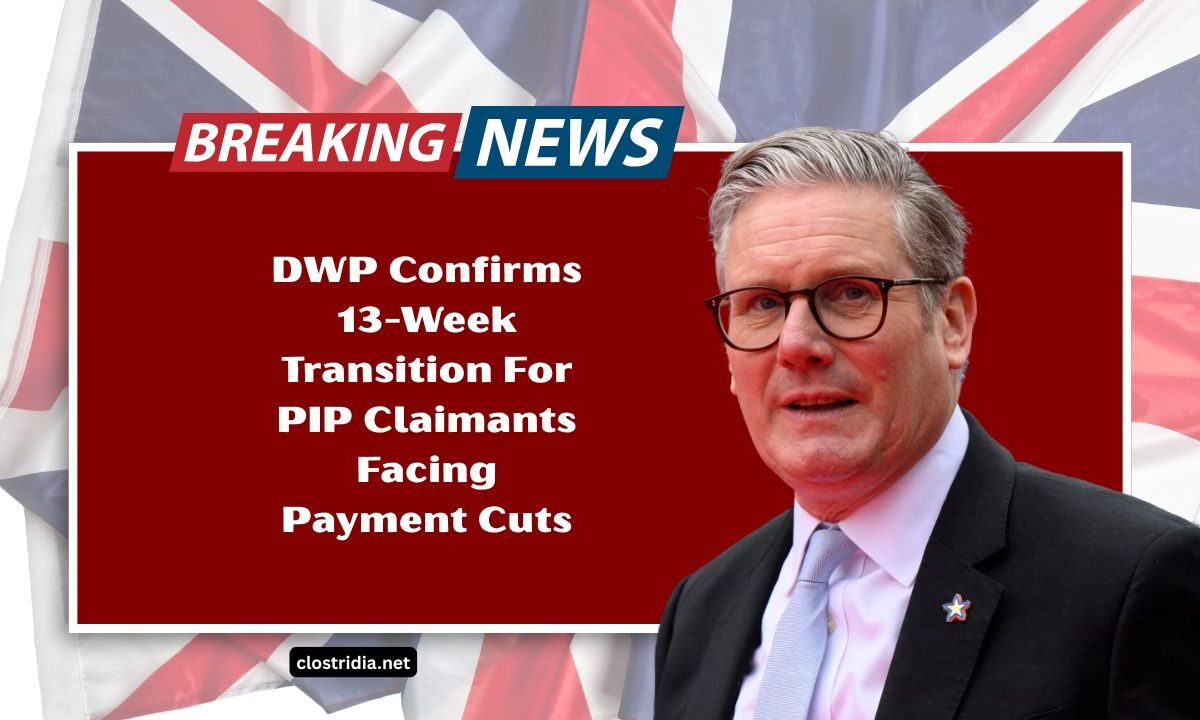The Department for Work and Pensions (DWP) is set to introduce a major change to Personal Independence Payments (PIP), affecting claimants across the UK.
As part of the upcoming Welfare Reform Bill, the government has outlined a 13-week transitional period for individuals who no longer qualify for PIP under new eligibility requirements.
The announcement of these reforms, scheduled to be unveiled this week, is expected to impact approximately 3.7 million people currently receiving PIP, a number that is anticipated to grow to 4 million by the end of the decade.
What is the 13-Week Transitional Period?
As per the new measures, PIP claimants who lose their eligibility will still receive payments for an additional 13 weeks.
This transition period aims to offer financial relief to those impacted by the upcoming changes. After the 13-week period, the payments will be stopped.
This temporary safeguard is designed to offer a brief respite while individuals adjust to the new policies.
Key Points of the 13-Week Transitional Period
| Transition Period | Details |
|---|---|
| Duration | 13 weeks |
| Effect | Continued PIP payments for 13 weeks after eligibility ends |
| End of Payments | Payments stop after the 13-week period |
| Impact | Affects PIP claimants who no longer meet eligibility criteria |
Carer’s Allowance to Continue During Transition
During the 13-week transitional period, individuals receiving Carer’s Allowance will still be eligible for payments. However, once PIP payments are discontinued, Carer’s Allowance will also cease.
This change is significant for those who rely on both forms of support, and it raises concerns about how the reduction will affect households.
Dr. Simon Opher, MP for Stroud, criticized the government for not going far enough to protect vulnerable claimants, arguing that the 13-week delay is insufficient to support those who rely heavily on PIP.
Proposed Reforms and Controversial Cuts
The government has introduced these changes to reduce spending and streamline the welfare system.
The anticipated annual savings by 2030 are expected to reach £5 billion. However, these savings will come at a cost, as the changes will significantly impact people with long-term disabilities and chronic conditions.
A recent impact assessment by the UK government revealed that approximately 250,000 individuals—including 50,000 children—could fall into relative poverty as a result of these changes. Critics argue that the cuts will disproportionately affect the most vulnerable members of society.
Upcoming Changes to PIP and Welfare System
In addition to the 13-week transitional period, the government has proposed further reforms to the PIP system, which will directly affect eligibility. These include:
- Ending reassessments for individuals who will never work due to lifelong conditions.
- Scrapping the Work Capability Assessment, which currently assesses the ability of individuals to work.
- Introducing new eligibility requirements for PIP, requiring claimants to score at least four points in one of the daily living activities to qualify for the daily living component of the benefit.
These proposals are part of a broader package of reforms aimed at improving the sustainability of the welfare system.
DWP’s Commitment to Protecting the Most Vulnerable
DWP Minister Liz Kendall has emphasized that while the government is pursuing these reforms, it remains committed to protecting the most vulnerable.
In an interview with The Guardian, she stated: “We are putting additional protections on the face of the Bill to support the most vulnerable and help people affected by the changes.”
These protections are intended to ensure that those with the greatest needs are still supported, even as the government seeks to make savings.
Impact of Reforms on Working-Age Claimants
One of the most contentious aspects of these reforms is the reduction in the number of working-age individuals receiving disability benefits.
The government has indicated that it intends to curtail the number of people receiving sickness and disability benefits as part of its effort to reduce welfare expenditure.
The DWP’s proposal to introduce a 13-week transitional period for PIP claimants marks a significant shift in the UK’s welfare system.
While this change offers some temporary relief, it has sparked concerns about the long-term impact on individuals who rely on these payments.
Although the government claims these reforms are essential for the sustainability of the welfare system, many MPs, including Dr. Simon Opher, continue to oppose the cuts, arguing that they fail to adequately support those most in need.
FAQs
What is the 13-week transitional period for PIP claimants?
The 13-week transitional period means that individuals who no longer qualify for PIP will continue to receive payments for 13 weeks before they are discontinued.
Who will be affected by the upcoming PIP reforms?
The reforms will affect approximately 3.7 million PIP claimants, with expectations that the number will rise to 4 million by 2030.
What are the new eligibility criteria for PIP?
The new eligibility criteria require claimants to score at least four points in one of the daily living activities to qualify for the daily living component of PIP.
